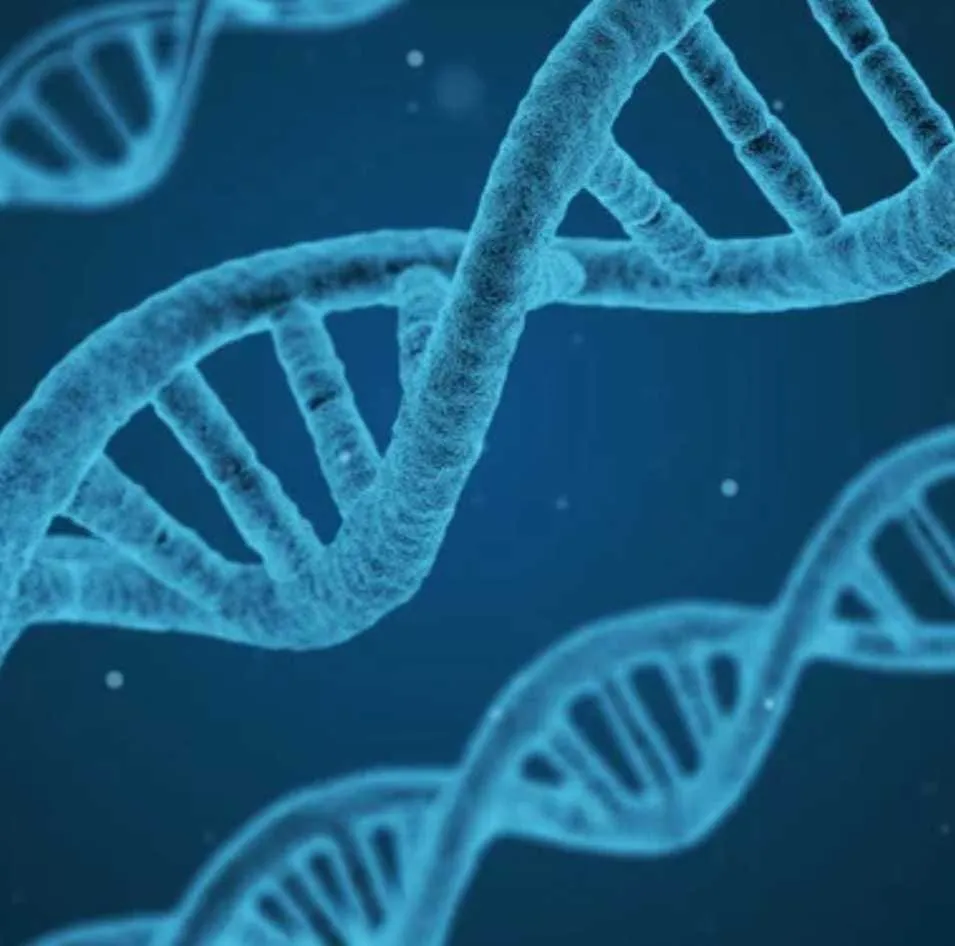Even as a child I had overheard adult conversations.
“Did you hear about so-and-so? He was diagnosed with cancer.”
As I grew older, I became more aware of how devastating cancer really was. Little did I know just how much I’d learn about the word no family wants to hear.
In the late ‘80s we were fortunate enough to meet a family from Louisiana at our summer church revival. That family had a son who was around the same age as me and my older brothers.
Jed had leukemia. I had no idea what that was. I just knew that he was sick. He had a certain smile about him that has stuck with me my whole life.
One of my favorite memories was that he wanted to go squirrel hunting. My dad allowed Jed's dad to take him on a squirrel hunt on our property.
Jed had a .22 caliber air rifle, which was far superior to our Red Ryder BB guns, so he was well prepared to go. I could take you to the exact spot where Jed got his first squirrel. I can still see him smiling almost 40 years later.
They returned to Louisiana that fall. I didn’t know it at the time, but one of the reasons they were up here was for treatment in Little Rock.
In the mid-2000’s our family began a new journey after receiving confirmation that our mother had been diagnosed with colon cancer.
Mom was in her mid-50s, tough as nails and determined to fight it out — and she sure did.
She chose her doctors and followed their advice. I can’t describe how hard it was watching her go through the ups and downs as chemotherapy and radiation took its toll on her body. We lived it every day.
Mom never complained. She just pushed forward. She got to see her youngest grandbabies and hold them both. She was a true blessing for all of us.

In the final year of her battle with cancer, the doctors determined that Mom had a mismatched repair gene in her DNA. In December 2016, we lost our mother to complications associated with her treatment for cancer. But she lives on in each and every one of us. I miss her every day.
June 2018
I received a call saying my then 31-year-old brother Bobby was in the hospital.
A week or so later he was diagnosed with a rare form of colon cancer. He was offered surgery here in Arkansas to make him comfortable and we were told that was the best they had to offer. They gave him a mere six months at best. Not good enough.
In my family we dig in, there’s not much quit in anyone of us no matter what, we push harder.
This new diagnosis was shocking, but I knew that something could be done. That information given in the last year of Momma’s battle was valuable. Our family went into overdrive, calling the top cancer treatment centers across the country.
Within a couple days we had Bobby on his way to Cancer Treatment Centers of America in Tulsa. No one in my family was willing to accept that there was no hope. Those doctors studied the pathology from Arkansas. They met often discussing his case as they formulated a plan. A real team.
After weeks of planning, the decision was made to biopsy the tumor before full-blown surgery. Those doctors gathered as much information as possible. A 16+ hour surgery was successfully completed a few weeks later.

Surgical pathology offers hope
In the days following surgery, genetics doctors discovered that Bobby had inherited a mismatched repair gene, slightly different than our mother’s. They confirmed he had Lynch syndrome.
We were told that with the recent discoveries of new frontline treatments that there was a good chance that treatment would be successful at least for a while. Not one doctor would comment on a hypothetical time frame for his life. Positive attitudes projected hope for all of us.
Standard of care
Chemotherapy for Bobby was started to satisfy insurance requirements for the standard of care protocol.
In many cancer cases, doctors rely on chemotherapy and old-school photon radiation to treat cancer.
The genetics doctors created a cutting-edge plan. Start Bobby on immunotherapy as soon as insurance would approve it. After a round of chemotherapy, Bobby transitioned to Opdivo and Yervoy combination therapy hopefully to activate his immune system.
Scan after scan. No evidence of disease.
After completing the dual immunotherapy, he started maintenance treatment with Keytruda, which he still takes to this day.
As I write this, Bobby has beaten all odds and has no evidence of cancer. This June it will be six years since his original diagnosis. Not six months; six years.
Lynch syndrome
In the 1960s Dr. Henry Lynch continued the pioneering research of Dr. Aldred Scott Warthin and “Family G” that began in the 1800s. Lynch’s studies led to further discoveries that flaws in human germline DNA repair genes impacted families throughout generations and around the world.
Even with decades of information readily available, most doctors still associate Lynch syndrome with colon cancer only. That’s simply inaccurate information. You can take it from me. Finding a Lynch syndrome expert in oncology in America is no small feat.
Being a researcher into all kinds of topics, Lynch syndrome is a subject I am fluent in.
A simple understanding of Lynch syndrome from the Mayo Clinic: “Lynch syndrome is caused by genes that are passed from parents to children.
Genes are pieces of DNA. DNA is like a set of instructions for every chemical process that happens in the body.
As cells grow and make new cells as part of their lifecycle, they make copies of their DNA. Sometimes the copies have errors. The body has a set of genes that hold the instructions for finding the errors and fixing them. Doctors call these genes mismatch repair genes.
People with Lynch syndrome have mismatch repair genes that don't work as expected. If an error happens in the DNA, it might not get fixed. This could cause cells that grow out of control and become cancer cells.”
The cell continues to grow, evading the immune system’s checks and balances.
As proven in Bobby's case, if the immune system recognizes the cancer with immunotherapy, it could stop it.
My research into cancer has given me the general understanding that all cancers are simply a rogue cell that has mutated due to environmental exposure to chemicals or other DNA damage, including repair gene systems. Cells continue to divide, evading the body’s immune system.
Testing for Lynch syndrome
Germline DNA testing for Lynch syndrome is often overlooked at the initial diagnosis of cancer.
I was shocked to realize that testing for Lynch syndrome and other known cancer pre-disposition genetic abnormalities is not standard protocol when a person receives a cancer diagnosis. But it should be.
Bringing awareness to Lynch syndrome is a top priority for me.
According to studies, Lynch syndrome has a 50% chance of being passed down to the next generation. If one parent has a repair gene issue, it's possible for children to inherit the same deficiency.
Studies indicate 1 in 300 have Lynch syndrome.
While I'm not a doctor, I have done extensive research into this subject due to the impact on my family. I have some real-world advice for you: If you or a loved one is diagnosed with cancer, ask your doctor to test for Lynch syndrome. A germline DNA test is typically less than $300. Money well spent.
Often times in peer-reviewed studies, sourced from the National Cancer Institute and others, Lynch syndrome is discovered after a patient has received numerous DNA damaging chemicals and radiation. No matter the cancer's location, get tested.
If, by chance, your oncologist hasn’t studied Lynch syndrome, a test on the front end could reshape your entire treatment plan. Advanced treatment options are rapidly developing — almost daily — especially for patients with Lynch syndrome. Vaccines, for example, are currently in trial stages in select cancer research centers.
We are exposed to low-level radiation in almost every aspect of our busy lives. But if you live in my world, you have a different perspective. Everyday things — like X-rays — could put people with Lynch syndrome at a higher risk for cell damage. Studies, so far, are inconclusive about the effects of low-level radiation on cancer.
Knowing you have Lynch syndrome, especially with a cancer diagnosis, can provide your doctors a better road map to your overall care.
If you are diagnosed with Lynch syndrome, family members should also get tested. Lynch syndrome patients (not just cancer patients) should receive additional medical surveillance like earlier colonoscopies. They also could be eligible for innovative medical trials.
September 1, 2022
On the first day of September 2022, I was somewhere in South Arkansas heading home. I had been working to drain the water left behind by a colony of beaver. That was my work, self-employed logger and part-time beaver eradicator.
It was a typical day. I had spoken to my son and was headed to see him before he went to work.
When I arrived, I found him disoriented. A trip to the hospital brought devastating news.
My son, 20-years-old, was diagnosed by MRI to have a primary brain tumor. I cannot describe the overwhelming fear and anxiety I felt as the neurologist told us the news.
Being who I am, I returned home to retrieve the DNA profiles of my mom and little brother to arm the doctors with as much information as I could. My research went into overdrive.
Surgery 2022
Who really knows what will happen after brain surgery? Emotions overcame me, seeing my son, standing on his own two feet after surgery.

Since my son’s diagnosis, I have been right here with him every single day. I won’t go into all the details of what we have been through day after day since this journey began. I will say that he is currently “NED” — no evidence of disease. Every day is a blessing. We take nothing for granted. I spend as much time as I can with my soon-to-be 22-year-old son.
Dealing with a primary brain tumor has brought about a whole new set of challenges when it comes to ongoing treatment. I am a full-time caregiver, having given up logging and trapping to help navigate the many hurdles of our new day-to-day life.
In spite of all of the challenges we have faced since his diagnosis, it's a blessing my son has not suffered any major deficits from his treatment. We are currently living a normal life — shopping, watching movies, visiting museums. He still even dominates PokeGyms.
I hope that sharing this story will make a difference in someone’s life. Cancer is a devastating disease. It’s forever life changing, not just for the patient, but for the entire family.
Remember, I’m not a doctor and I never planned to research something like this. But I can say if you face cancer, get tested for Lynch syndrome. It could make a difference in your life and those around you.
You are your own best advocate when facing any medical diagnosis. Some family members are unable to properly advocate for the best care for themselves. If you have a family member in need, step up. Research is available online to help anyone who takes the time to read and study.
When family members like me transition from full-time employment to full-time caregiver, the emotional and financial strain is overwhelming. I want to thank each one of you who has supported South Arkansas Reckoning through a paid subscription. You have no idea how much it means.
Richard





